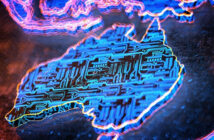Media release:
To aid the national security community in imagining contemporary threats, the Australian Security Research Centre (ASRC) is organising Australia’s Security Nightmares: The National Security Short Story Competition. The competition aims to produce a set of short stories that will contribute to a better conception of possible future threats and help defence, intelligence services, emergency managers, health agencies and other public, private and non-government organisations to be better prepared. The ASRC competition also aims to raise community awareness of national security challenges, and lead to better individual and community resilience.
Entries close 23:00 (AEST) on Sunday 30 September 2012.
Download Competition Details PDF.
Competition webpage http://www.safeguardingaustraliasummit.org.au/?getp=434
The winner will be announced at the Safeguarding Australia Summit dinner on 24 October 2012. The competition’s full terms and conditions are at below.The first prize is $1000, with the second prize being $500 and third prize being $300. In addition up to 10 Certificates of Commendation will be awarded. Jakeman Business Solutions is sponsoring the first prize.New, unpublished writers are encouraged to enter the competition.
Entrants need to write a short story with a security scenario as the story plot line or as the essential backdrop. An Australia context to the story is required, and the story needs to be set between today and 2020. While the story is to be fictional, it needs to be grounded in a plausible, coherent and detailed security situation. Rather than just describing on an avalanche of frightening events, writers are encouraged to focus on the consequences and challenges posed by their scenarios, and tease out what the official and public responses would be. Such stories provide more useful insights for those planning to face security threats.
The power of scenarios should not be underestimated. Australia’s national security planning relies heavily on their use. For example, Defence has a highly classified collection of scenarios called the Australian Capability Context Scenarios (ACCS) which reflect possible circumstances under which the Australian Defence Forces might be employed. The ACCS are used to test concepts and capabilities through Defence’s experimentation framework. They are a critical element of Defence’s most important top secret strategic defence planning document, Defence Planning Guidance. For more information, see Defence’s The Strategy Framework 2010.
Why are we doing it?
In 2002, the Foreign Policy Magazine reported that “Shortly following the September 11 attacks, the U.S. Army enlisted the help of some of Hollywood’s top action screenwriters and directors, including the writers of Die Hard and McGyver, to conjure up possible scenarios for future terrorist attacks”. The U.S. military went down this path because there had been a failure of imagination by the national security community to conceive that an adversary could do something so radical as hijack and crash planes into buildings.
As noted in the US Government’s 9/11 Commission Report “Imagination is not a gift usually associated with bureaucracies [but it is]crucial to find a way of routinizing, even bureaucratizing, the exercise of imagination.” A key way that the national security community has tackled this problem has been to generate audacious, radical and even far-fetched terrorist scenarios. These scenarios allow security specialists to identify the myriad of security threats, assess their likelihood and consequences, and then prioritise and manage the most important risks.
Fast forward 11 years, and while the threats from terrorists are now well integrated into national security plans, there are a host of other threats that now pose major risks to Australia. These include pandemic outbreaks, global energy disruptions, food security shocks, civil society breakdown, and transnational crime destabilising entire countries. Some would cause small scale disruption and deaths in Australia, and others would cause catastrophic loss of life and possibly even the collapse of the nation.
The ASRC wants to foster imaginative thinking so as to ensure Australia is better prepared to deal with the varied threats facing our security.
Athol Yates
Executive Director
Australian Security Research Centre
PO Box 295, Curtin ACT 2605
P: (02) 6161 5143
F: (02) 6161 5144
M: 0402 419 583
E: athol.yates@securityresearch.org.au
W: www.securityresearch.org.au
The Australian Security Research Centre undertakes independent, evidence-based analysis of domestic security issues, and is supported by its consulting, publications and professional development programs.





